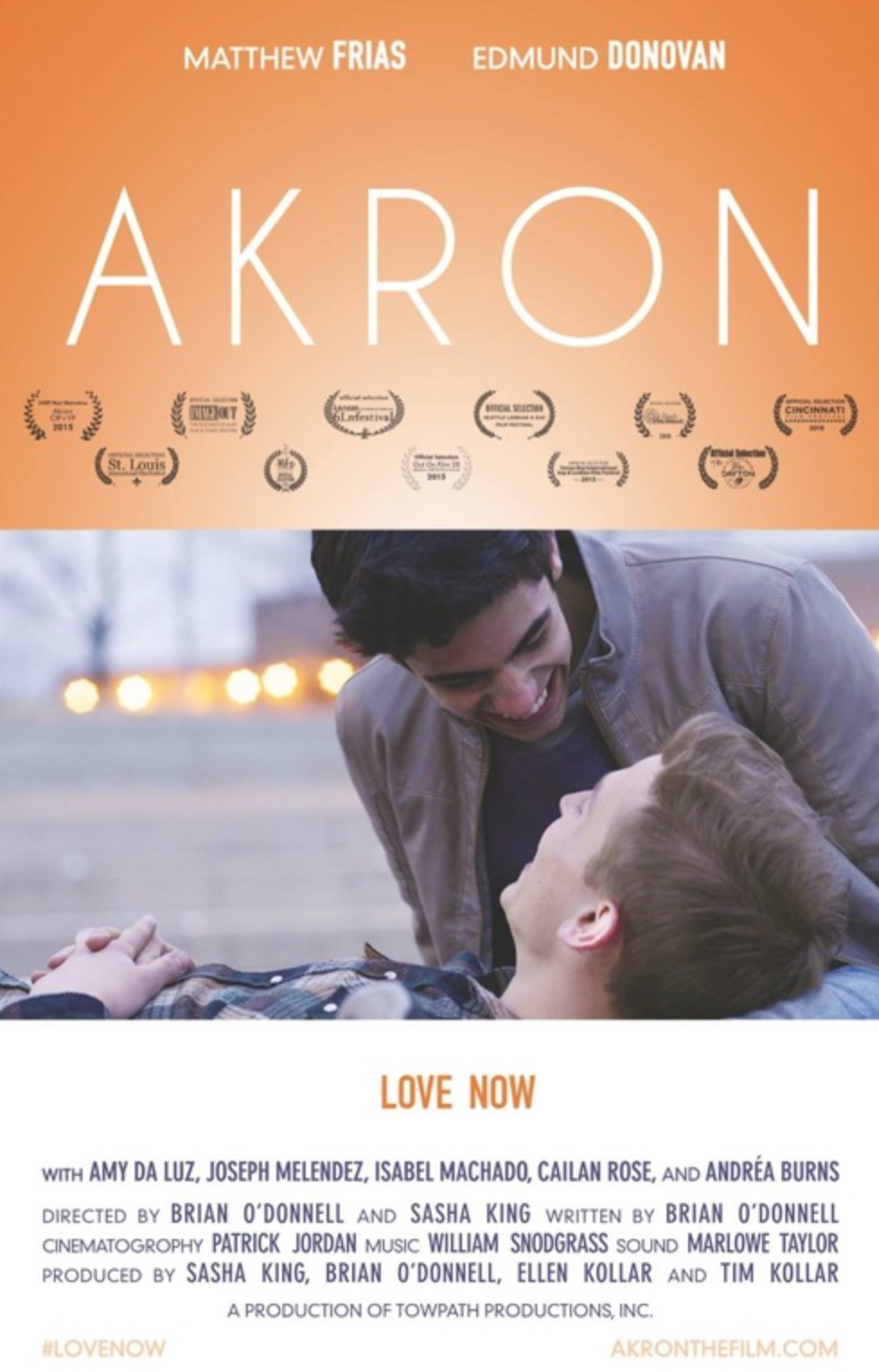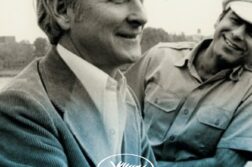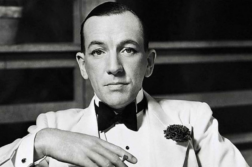 Jonathan
Jonathan
Directed by Piotr J. Lewandowski
U.S. Distribution by Wolfe Video
This isn’t the first movie to examine the family drama when it’s a parent who’s gay and the kid(s) who are straight, but it does so in a way that’s remarkably authentic and gritty—literally so, as it’s set on a dairy farm in the German countryside. In this case, the gay father is a crusty old farmer who spends his dying days bashing down a stone wall with a sledgehammer while slowly succumbing to melanoma. In what seems to be a cruel inside joke, the straight son is an actor of epic good looks, and yet he struggles with deeply hostile feelings toward his gay father. These feelings, it turns out, are inextricably but mysteriously linked to his mother’s untimely demise.
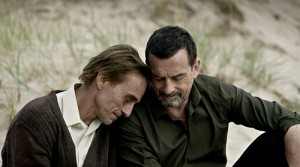 The farm is inhabited by a cast of highly individual characters, each with his or own crosses to bear. And now the imminent demise of the titular head of the family has brought these simmering feelings to the surface—and has also brought the old man’s long-lost lover back to the farm, where he seems to have left some unfinished business. The film is named for the straight son, and justly so, as Jonathan struggles not only with his father’s sexuality but also his own raging hormones, which give rise to several quite watchable, albeit heterosexual, love scenes. But the looming question returns: will Jonathan reconcile with his father as the latter’s final days tick away?
The farm is inhabited by a cast of highly individual characters, each with his or own crosses to bear. And now the imminent demise of the titular head of the family has brought these simmering feelings to the surface—and has also brought the old man’s long-lost lover back to the farm, where he seems to have left some unfinished business. The film is named for the straight son, and justly so, as Jonathan struggles not only with his father’s sexuality but also his own raging hormones, which give rise to several quite watchable, albeit heterosexual, love scenes. But the looming question returns: will Jonathan reconcile with his father as the latter’s final days tick away?
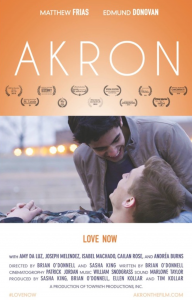 Akron
Akron
Directed by Sasha King and Brian O’Donnell
U.S. Distribution by Wolfe Video
The inverse of the above scenario would be a gay young person whose parents accept his sexuality unconditionally, which is what we find in Akron. The family in question happens to be Hispanic, and Benny’s parents couldn’t be happier when their son finds a suitable young man to date, the ultra-WASPy Christopher. Much of the action centers on the guys’ courtship—the ethnic difference makes for lighthearted misunderstandings, but no real drama—until… An event from the past suddenly disrupts this budding romance, an incident involving their mothers that occurred fifteen years ago when the boys 
were around six—just old enough to remember, however dimly, “that day.” The plot unfolds in an interesting way as Benny and Christopher come to terms with this turn of events. Still, one wonders if the main plot element—the chance reconnection of two families joined by tragedy—could not have been carried off just as well by a straight couple, who would presumably have confronted the same emotional scars. This is not a criticism, and perhaps it’s a sign of progress that the sexual orientation of the young couple is irrelevant to the story. That said, this strategy clearly marks Akron as a “gay movie” which will probably be marketed exclusively to gay viewers. And that, too, can be taken as a sign of the times.


